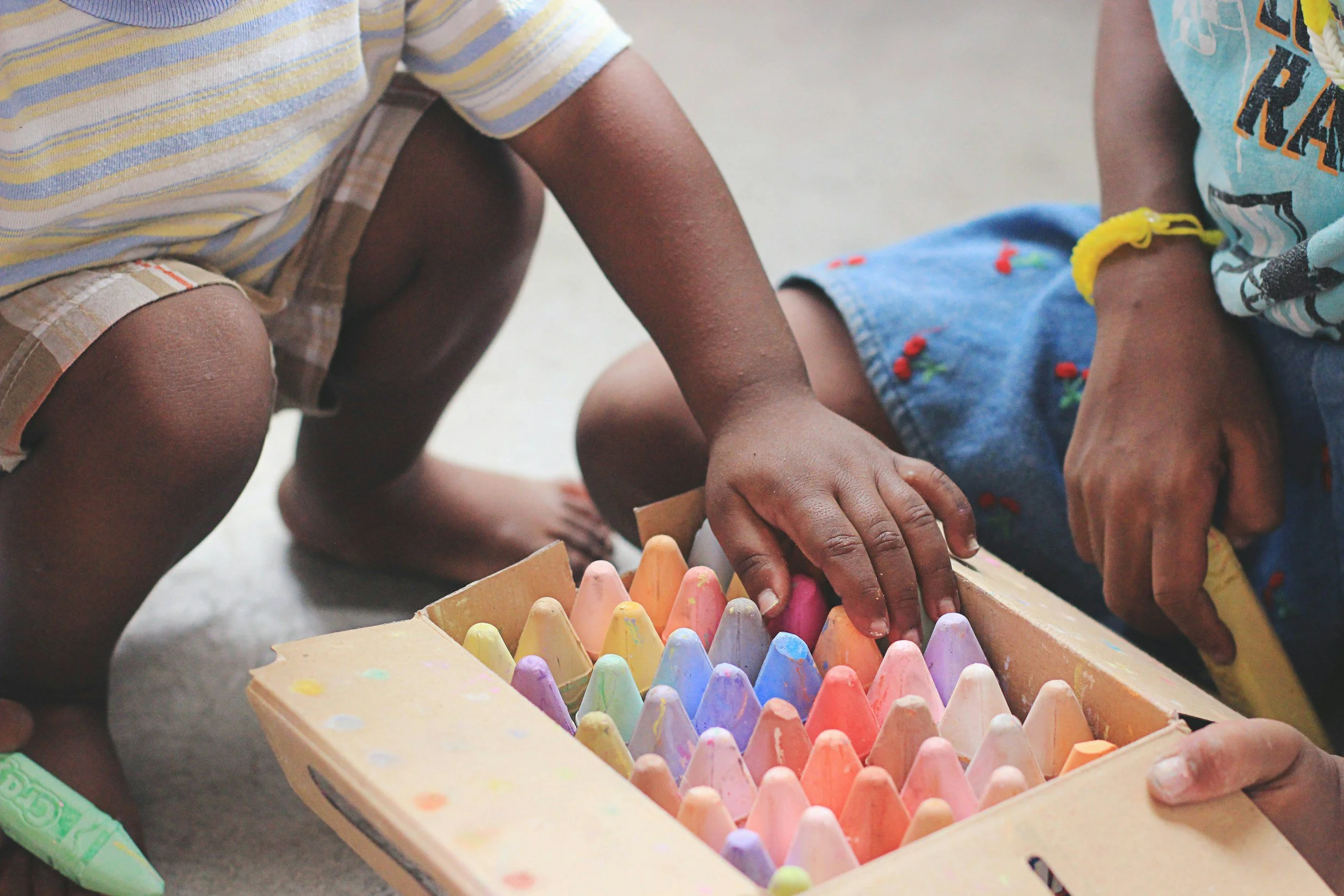Navigating Therapy Options for Children in Foster Care: Finding the Right Fit
A Mother's Journey Through the Therapy Maze
So I've been asked "in all your years of experience (cough and cringe as I don't feel experienced) as a mom to children of all backgrounds and abilities – how do you find the right therapy for your child?" I have quite the scientific approach and here is my process over the years...
I have been the mom leaning in and eavesdropping on conversations at the playground about the "new" therapy that was life-changing. I have been the mom crying at 1 a.m. and scrolling through Google to figure out what will make all the craziness stop. I have been the mom at the doctor's office demanding that they just tell us where to go to FIX.THIS. I have been the mom at every conference and breakout session listening to specialists and testimonials trying to find the right "fit." I have been the mom checking out a pile of books from the library and getting to know the Amazon deliverer on a first-name basis as I order all the latest therapy books but never get to read them. I have been the mom quizzing other parents in the support groups to find out about their research and process so I can see what I've missed. And I've been the mom praying on the floor in the bathroom out of fear, anxiety, worry, desperation just asking God to show me what to do. See – I have an amazing process.
All of my children are different. All of their experiences that led them to be part of our family are different. They are all unique and they have unique needs. What works for one, doesn't work for the other. And even the order of the types of therapy that worked for one may not work for the other.
It's About Taking the Next Step
What I have learned over the years is that it is okay. I'm okay. We are okay. It's not just about finding the "right" answer or process or therapy. It's about getting help.
Ask questions. Then take the next step. Sometimes we've gotten it right, and sometimes we've gotten it wrong. But even a wrong step has taken us to the next step. And often that next step is what brought us to a solution, or the therapist that we connected with, or the modality that worked.
Make sure that all of those interacting with your child understand trauma, whether that is a school teacher or a therapist, and that they are willing to work with you as a team to see the amazing preciousness of your child and then take the next step.
Understanding Different Therapy Types for Children in Foster Care
I hear all different kinds of therapy and I don't know what I should be looking for - EMDR, CBT, play therapy, behavior management, trauma therapy, attachment - what are they?
Evidence-Based vs. Theory-Based Therapies
Therapy practices often specialize in a select few therapy modalities. Individual therapists may be fully or partially trained in a variety of therapy modalities. Generally, there are two types of therapy modalities: evidenced-based and theory.
Evidence-based practices are those that have been researched and found to have evidence backing up their ability to treat specific diagnoses. These practices are typically the only kind insurance reimburses for.
Theory-based modalities are those still in the research phase, not clinically "proven," but typically effective. Most therapists use a combination of both.
Common Therapy Modalities for Children in Foster Care
Eye-Movement Desensitization and Reprocessing (EMDR)
EMDR is an evidenced-based treatment for many diagnoses, most notably those caused by trauma. It is an experiential type of therapy, and body-based.
Cognitive Behavior Therapy (CBT) / Trauma-Focused CBT
CBT or Trauma-Focused Cognitive Behavior Therapy (TF-CBT) are two of the most common evidence-based modalities used by therapists. They are focused on the connection between behaviors, thoughts, and emotions and more talk, play, or homework based.
Play Therapy
Play therapy is a broad category of modalities. It can include anything from therapeutic board games, sand tray, dollhouse interventions, role-playing, puppets, to tossing a ball back and forth.
Attachment Theory
Attachment theory is often woven into the previously mentioned modalities when working with children in foster care because foster care includes relational trauma (being removed) and complex trauma (the source of stress is not just an event, it is ongoing).
Advocating for Your Child's Therapeutic Needs
Most practices and therapists encourage talking with your therapist about what modalities they offer, and asking them questions about what it means. No one knows about it unless they're told!
At Joy Meadows, our Therapy Center understands the unique needs of children who have experienced trauma through foster care. Our therapists are trained in multiple modalities and work closely with parents to find the approaches that best serve each child's individual needs.
Remember, finding the right therapy is often a journey rather than a destination. The most important thing is to begin, to ask questions, and to keep taking the next step forward in supporting your child's healing process.
This blog post is part of our Foster Care 101 series, designed to provide guidance and encouragement for those considering or beginning their foster care journey.
Therapy at Joy Meadows
Multiple therapy providers have second offices at the Joy Meadows Community Center, making scheduling simple for multiple kids and needs.
Family Mentors partner with caretakers to engage kids as needed while others are in sessions.



